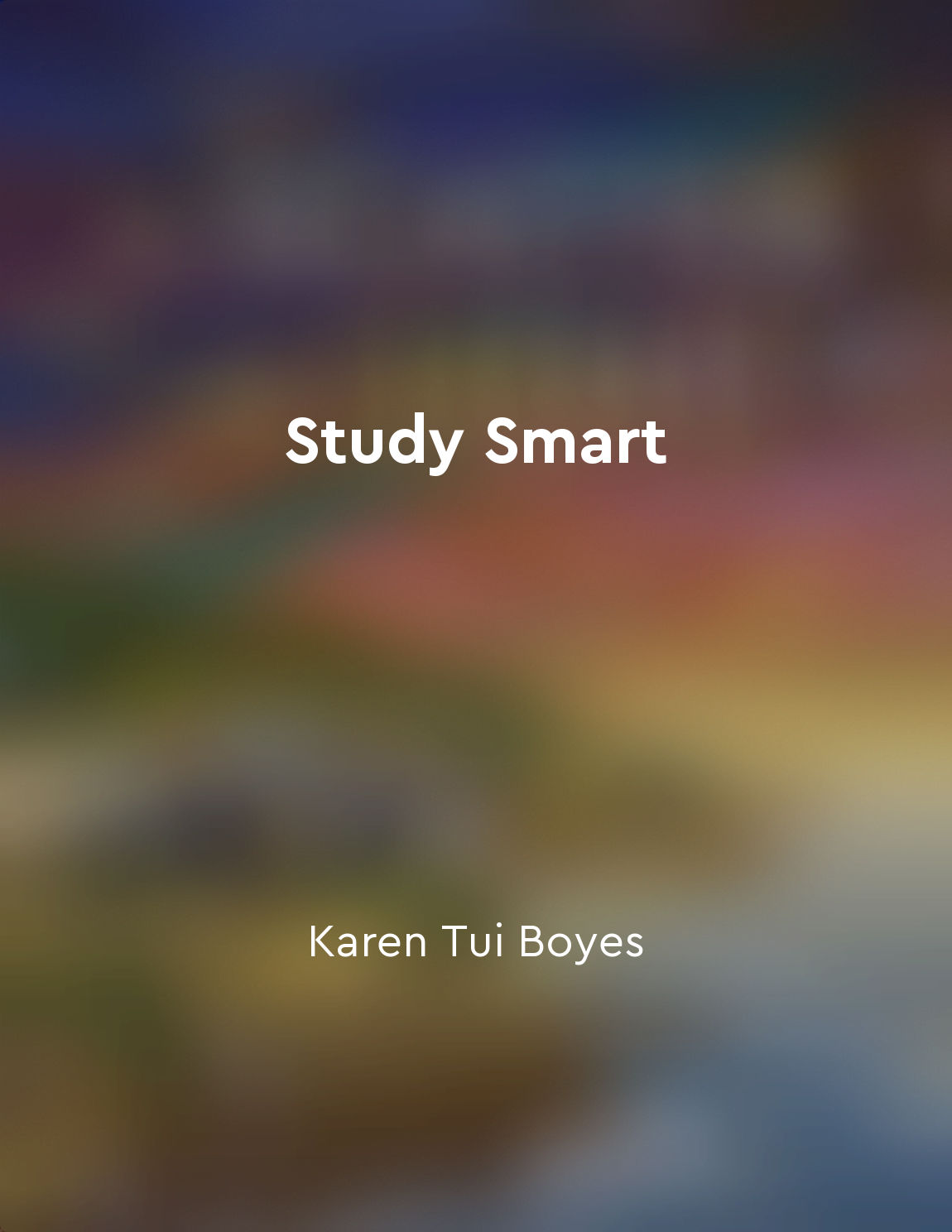Practice active reading and critical thinking skills from "summary" of How to Study and Understand Anything by Dan Desmarques
To truly understand anything you read, it is essential to engage actively with the text. This means more than just passively absorbing information - it requires you to think critically about the material presented. Active reading involves asking questions, making connections, and challenging assumptions as you progress through the text. This approach allows you to not only grasp the surface meaning of the words on the page but to delve deeper into the underlying concepts and implications. Critical thinking is another crucial skill to develop when studying and understanding any subject. This involves analyzing information, evaluating arguments, and forming well-reasoned conclusions based on evidence. When you apply critical thinking to your reading, you become an active participant in the learning process rather than a mere recipient of information. By questioning the author's perspective, examining the validity of their arguments, and considering alternative viewpoints, you can develop a more nuanced understanding of the subject matter. One way to practice active reading and critical thinking skills is to annotate the text as you read. This could involve highlighting key points, jotting down questions or reflections in the margins, or summarizing each paragraph in your own words. By engaging with the material in this way, you are forced to interact with the text rather than simply skimming over it. This deeper level of engagement can help you retain information more effectively and make connections between different ideas presented in the text. Another strategy to enhance your reading comprehension and critical thinking skills is to engage in discussions with others about the material. By sharing your thoughts and listening to alternative perspectives, you can gain new insights and deepen your understanding of the subject matter. This process of collaborative learning can help you see the text from different angles and challenge your own assumptions and biases.- Practicing active reading and critical thinking skills is essential for studying and understanding any subject. By actively engaging with the text, questioning assumptions, and evaluating arguments, you can develop a deeper understanding of the material and become a more critical thinker. Annotating the text, engaging in discussions with others, and approaching the material with an open mind are all effective strategies for honing these skills and becoming a more effective learner.
Similar Posts
Use of technology in education
The integration of technology in education has revolutionized the way students learn and teachers teach. Technology provides a ...
Fostering a culture of continuous improvement
To truly excel in any field, it is essential to cultivate an environment where continuous improvement is not only valued but ac...

I embraced the virtues of temperance and moderation
At my young age, I found myself drawn to the idea of temperance and moderation. I realized that by practicing self-control and ...
Encourage students to take risks in their writing
Encouraging students to take risks in their writing is a crucial aspect of fostering their growth and development as writers. W...

Take breaks
Taking breaks is a crucial aspect of studying smart. It may seem counterintuitive to step away from your work when you are tryi...
Young children possess vast potential for learning
Howard Gardner's exploration of the human mind reveals a fundamental truth about young children: they are capable of immense le...
Cognitive flexibility is essential for mental growth
In order to thrive in an ever-changing world, individuals must possess the ability to adapt and think creatively. This characte...
Empower students to think independently
The concept of empowering students to think independently is a crucial aspect of education that is often overlooked. It is not ...
Authentic materials and reallife language use
Authentic materials in Japanese language teaching refer to resources that are taken from real-life contexts, such as newspapers...
Seek feedback from others to enhance vocabulary usage
One effective way to improve your vocabulary usage is to seek feedback from others. By receiving input from different people, y...

